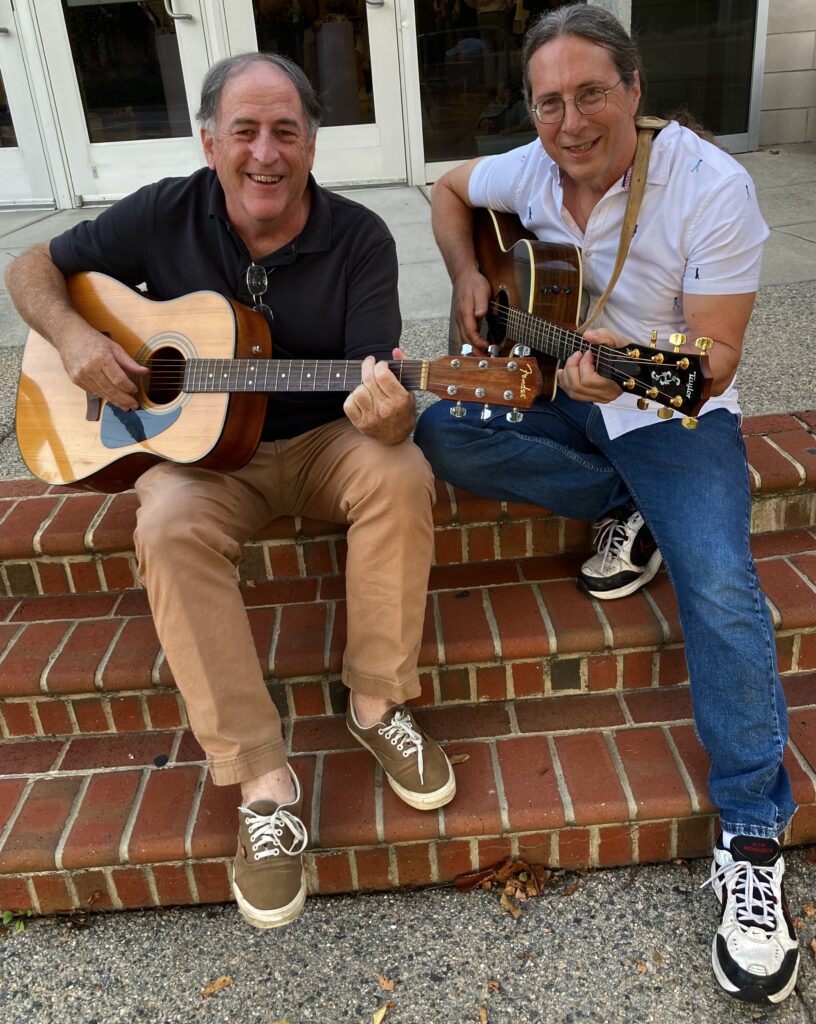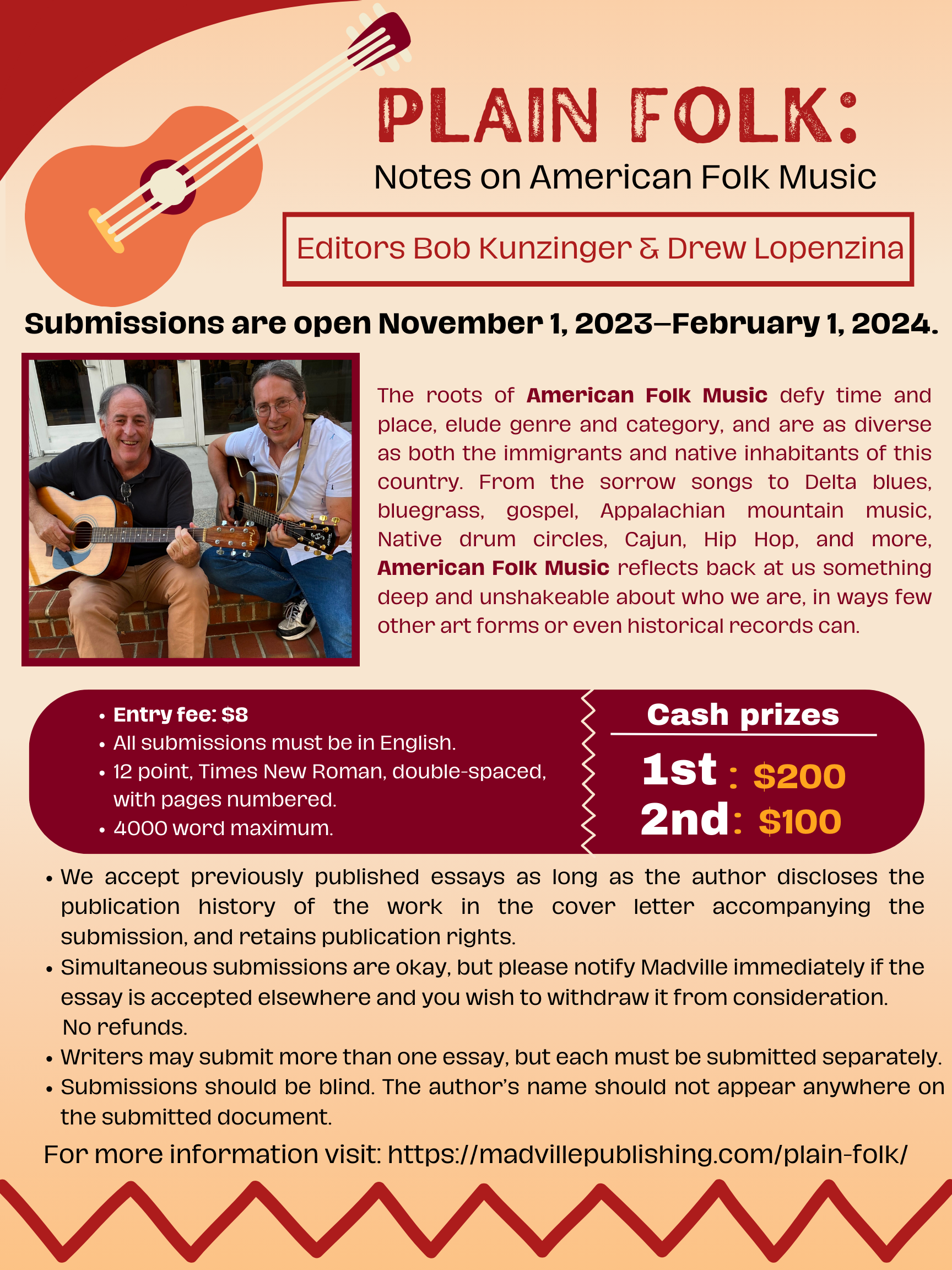The roots of American folk music defy time and place, elude genre and category, and are as diverse as both the immigrants and native inhabitants of this country. If traditional folk music consists of the songs, styles, and themes passed down through generations, contemporary folk music continues this American record of lives, loves, struggles, triumphs, and tragedies informing our collective human existence. From the sorrow songs to Delta blues, bluegrass, gospel, Appalachian mountain music, Native drum circles, Cajun, Hip Hop, and more, American Folk Music reflects back at us something deep and unshakeable about who we are, in ways few other art forms or even historical records can.
We call for essays that carry forward this notion of American folk music--what it means to us as individuals, as Americans, and how it continues to give shape, expression, and meaning to our lives.
Submission guidelines:
- Submissions are open November 1, 2023–February 1, 2024.
- A reading fee of $8 must be paid at the time of submission.
- All submissions must be in English.
- We accept previously published essays as long as the author discloses the publication history of the work in the cover letter accompanying the submission and retains publication rights.
- We accept simultaneous submissions, but please notify Madville immediately if the essay is accepted elsewhere and you wish to withdraw it from consideration. There will be no refunds of the reading fees.
- Writers may submit more than one essay, but each must be submitted separately.
- Submissions should be blind. The author’s name should not appear anywhere on the submitted document.
- Use 12 point, Times New Roman, double-spaced, with pages numbered.
- 4000 word maximum.
- Cash prizes for the two essays the editors like best. $200 for first prize, and $100 for second.
The Editors

Bob Kunzinger is the author of works, including The Iron Scar: A Father and Son in Siberia (2022), A Third Place: Notes in Nature (2019), Blessed Twilight: The Life of Vincent van Gogh (2018), and Penance (2008), still a popular book in Prague, the subject of the narrative. He has taught American Culture in Russia, Prague, Amsterdam, and Norway, and Creative Writing, Art Appreciation, English, and Humanities in the Hampton Roads, Virginia, area for more than thirty years. While he owns several guitars and made a living playing the folk circuit during and after college, his callouses have retreated.
Drew Lopenzina is Professor of English at Old Dominion University who teaches in the intersections of Early American and Native American literatures. He is the author of Through an Indian’s Looking Glass: A Cultural Biography of William Apess, Pequot (2017), described as a “tour de force” by the journal Native American and Indigenous Studies. His other books include Red Ink: Native Americans Picking up the Pen in the Colonial Period (2012) and The Routledge Introduction to Native American Literature (2020). Lopenzina plays guitar and mandolin and is part of the duo Wine Dark Sea, known in the Tidewater area around Norfolk, VA, for their epic acoustic folk and harmonies.


